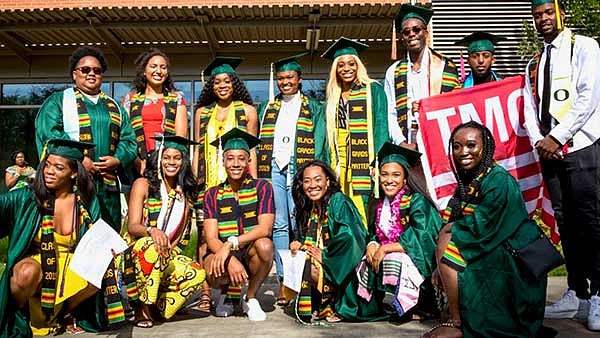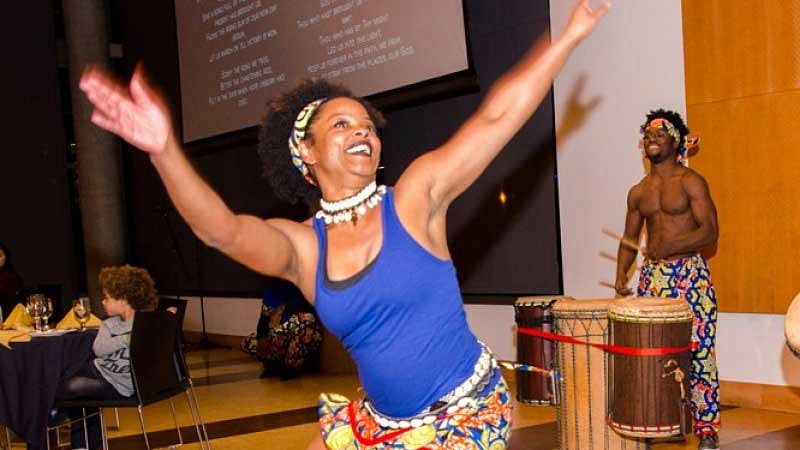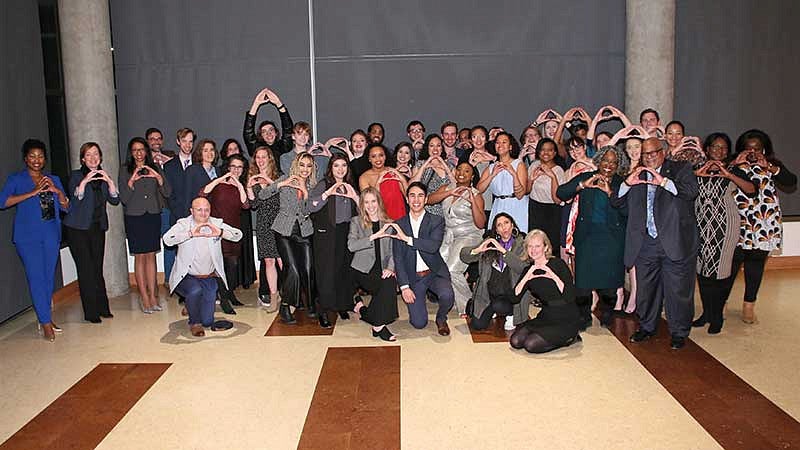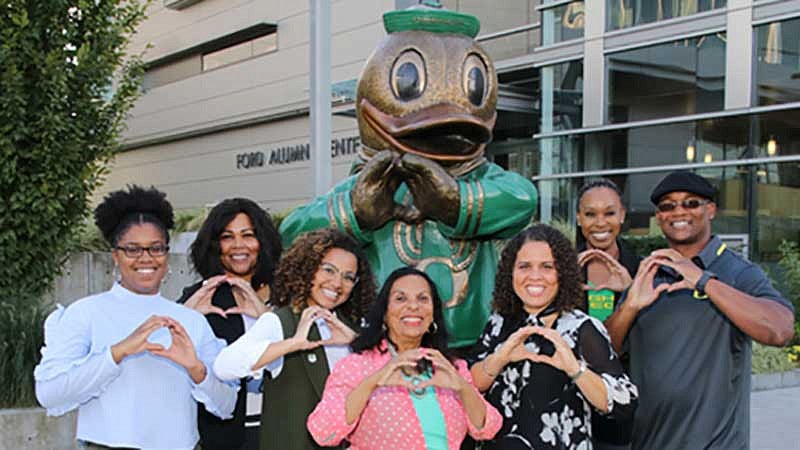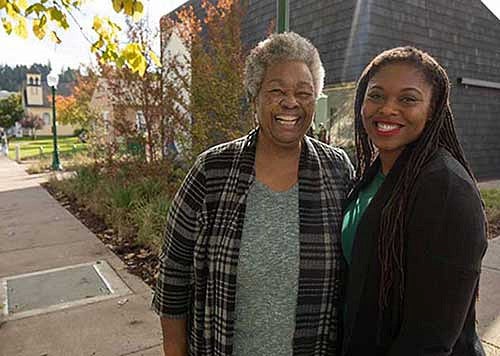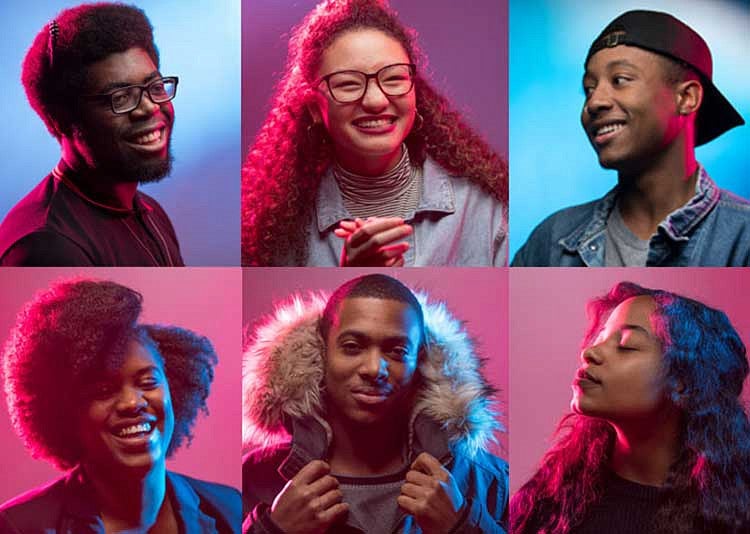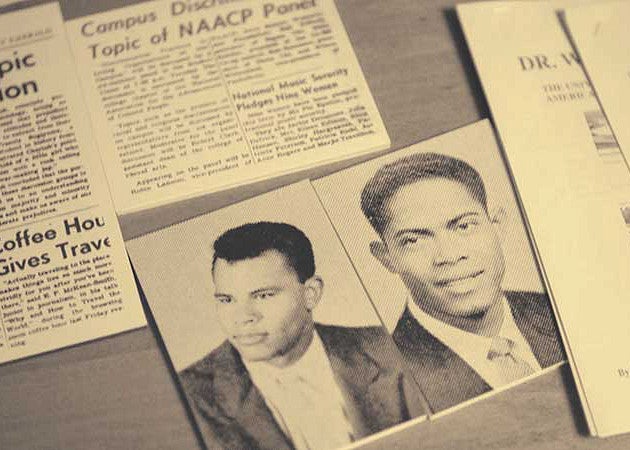
Moving Forward
First conceptualized in 1925 by historian Carter G. Woodson and the Association for the Study of Negro Life and History, Black History Month has been officially celebrated nationally every February since 1976. It honors and affirms the achievements by Black Americans and recognizes their central role in the US.
At the University of Oregon, we have much to celebrate and much to aspire to. As Vice President for Equity and Inclusion Yvette Alex-Assensoh wrote in her essay, Highlighting Oregon’s Black Leadership Gains During Black History Month 2020, “Black History Month 2020 is an opportunity for us to not just recognize and celebrate Black leaders, but to thoughtfully assess the landscape of Black leadership in Oregon and the critical role higher education plays in developing and cultivating these leaders, especially at the University of Oregon.”
As you see, we have much to celebrate and work to do. Senior Lahela Daniels writes of the home she found with black organizations on campus and their need to help combat isolation she felt as a black student. The opening of the Black Cultural Center was a milestone inspired by the Black Student Task Force’s November 2015 demands which we continue to be guided by.
Zena Howard’s talk “Cultural Expressions in the Built Environment” focused on the importance of place, pressing for us as the UO Committee on Recognizing our Diverse History works to consider how our physical campus environment can better represent and broaden our understanding of our diverse histories.
Black History Month events like the State of Blackness at the UO will help us consider how we may analyze where we are and where we need to move forward, as will all the month’s offerings. There are experts on technology, labor unions, and civil rights or social events like the Soul2Soul mixer, Black Law Students Association banquet, BEOREGON basketball games, and more. We hope to see many of the UO community and beyond at the various Black History Month events and hope it spurs us to move forward every month of the year.
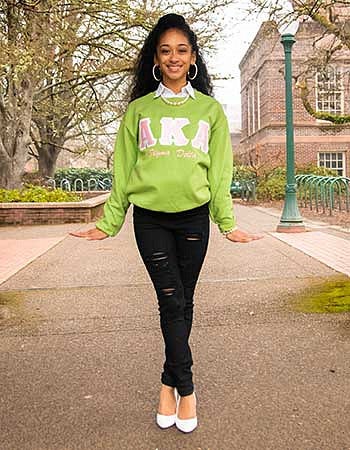
For the past four years at the University of Oregon, being Black on campus has had its rewards and challenges. This university has done well with collaborating with Black student-run organizations, such as the Black Student Union, Black Women of Achievement, and the Black Male Alliance.
In 2016, I graduated from Western Harnett High School in the small town of Lillington, North Carolina. On the east coast, it is much more diverse than here in Eugene. After my IntroDUCKtion in August 2016, the only person that I saw that looked like me was in the mirror.
I yearned to look for a family and a circle of friends that I could relate to in my everyday struggles and with being silenced in many white spaces. After my first Flock Party, I was introduced to the Black Student Union. From there on, I found my longtime family.
All of the Black organizations on campus have helped me feel at home and safe, especially during Black History Month. February is a time of unity and celebration of the rich Black history that enables American culture to thrive. The backbone of this country has been built off of the slavery and labor that was demanded of Black people and still does to this day. Celebrating the successes and failures in the history of our Black culture is vital to enriching the knowledge of today and tomorrow’s generations.
Super Soul Tuesdays Target Barriers to Success
Beginning Feb. 4, the Lyllye Reynolds-Parker Black Cultural Center will present Super Soul Tuesdays, an opportunity for the Black community to study, connect, and receive support.
Every Tuesday through week 10, drop-in advisement will be available 10:30 a.m.–8 p.m. in the BCC. Topics will include financial aid and academic advisement, career and internship exploration, study abroad opportunities, and exposure to other campus resources. The day will culminate with study hall from 5 to 8 p.m.
Super Soul Tuesdays were formed in partnership with the Center for Multicultural Academic Excellence, explained Aris Hall, PhD, coordinator of the BCC.
Hall said organizers considered ways they could serve Black students and help with their retention. They identified academic and emotional barriers, and reached out to campus partners to share support services.
“Our goal is to engage our students in a way that can help them be successful both academically and socially, in a collaborative partnership between academic affairs and student life,” Hall said.
Cultural Expression in the Built Environment
The buzz of excitement was audible after Zena Howard’s African-American Workshop and Lecture Series talk “Cultural Expression in the Built Environment” this winter. Black History Month is surely a time to revisit this inspiring presentation.
Known for her success leading visionary, complex, and culturally significant projects, including being the project manager for the Smithsonian’s National Museum of African American History and Culture and the Motown Museum in Detroit, Howard is the principal architect at Perkins+Will. She leads projects that successfully navigate social issues of equity and justice, honor history and memory, and restore lost cultural connections.
Howard’s lecture was critical for us at the UO. As the Committee on Recognizing our Diverse History works to consider how statues and artwork on campus can recognize people of diverse backgrounds, we can also look for ways in which context can be provided for existing landmarks on campus to explain how our understanding of our political and cultural history has evolved over time.
Introducing the HistoryMakers Digital Archive
In support of the opening of the Lyllye Reynolds-Parker Black Cultural Center, the UO Libraries has purchased institutional access to the HistoryMakers Digital Archive, the world’s largest African-American video oral history collection. As of January 2020, this database features 148,163 videos compiled from interviews with 2,691 historically significant African Americans.
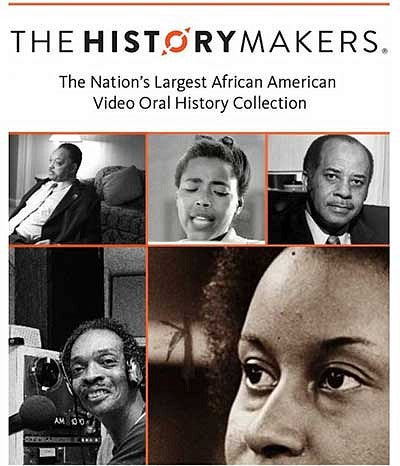
“While a basic version of the HistoryMakers site is available for free to the public, our institutional subscription provides access to the greatly expanded content in their digital video archives,” said Mark Watson, interim dean of libraries.
“This license is only available to universities, colleges, and public libraries in the US, so we are truly proud and excited to provide access for students, instructors, and researchers at the University of Oregon.”
The HistoryMakers Digital Archive is an ever-expanding collection of high-quality video content with fully keyword-searchable transcripts—a boon to researchers at all levels.
According to the website, “The life stories and experiences of the individual HistoryMakers interviewed for the HistoryMakers collection show the vast diversity of African-American contribution and achievement in America and abroad. They span a broad range in terms of education, economic and social status, political affiliations, and religious beliefs; they exhibit origins ranging from New England to Hawaii; and they share personal and family memories stretching from the 1700s to the present.”
Supported in part with $2.3 million from the National Science Foundation, the site includes interviews with more than 200 leading African-American scientists including NASA mathematician Katherine Johnson, who was featured in the movie Hidden Figures, and atmospheric scientist Warren Washington, one of the world’s leading climate change experts.
Thousands of other interview subjects range across the fields of business, entertainment, politics, media, religion, education, and more. Highlights include interviews with Harry Belafonte, Mellody Hobson, Hank Aaron, Savion Glover, Melissa Harris-Perry, Eric Holder, Charles Blow, Whoopi Goldberg, and James Earl Jones. Barack Obama was interviewed in 2001 while he was still an Illinois State Senator.
Members of the UO community can access licensed content on the HistoryMakers via https://researchguides.uoregon.edu/history-makers. Users may be automatically prompted to provide their UO login credentials when connecting from offsite.
Black and African-American Resources
Campus Resources
Community Groups and Organizations
Courses


